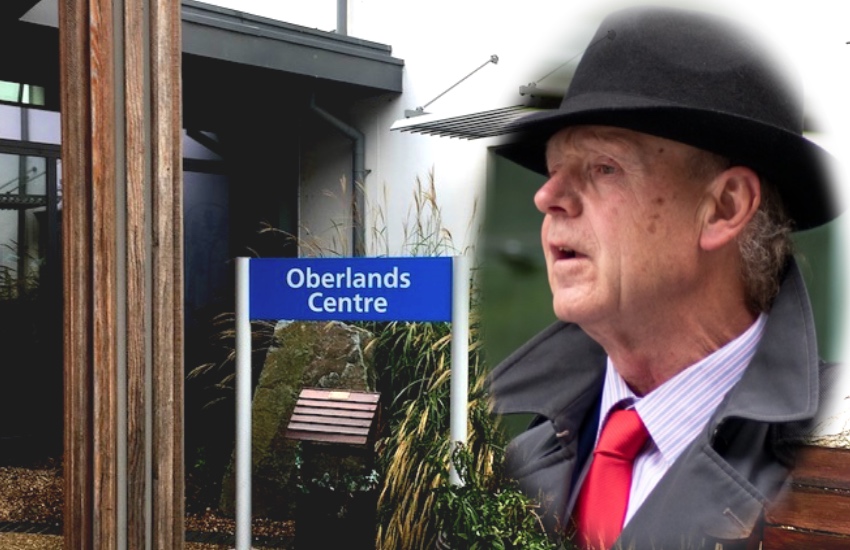


David Gedze's latest report into Guernsey's mental health provisions took note of the perceptions and feelings of a wide range of stakeholders for the first time, which did not feature in his original 2018 review.
He said: "I spent six days in Guernsey in May 2022, and spoke to service users, family members, States of Deliberation members, current and former staff of the secondary care services, and representatives from several organisations. I set up further meetings by video link in June 2022".
Invitations were sent to current and previous service users and their families, and whilst not everybody took the offer, several who did said their views were likely to be representative of the wider population.
Mr Gedze also recommended “really good signposting to reduce feelings of users” being pushed around different nodes in the system.
The views of stakeholders are detailed below.
Pictured: You can read Mr Gedze's 2022 report HERE.
17 individuals, and 15 family members of service users, spoke personally with Mr Gedze when he visited the island earlier this year.
Mr Gedze noted that most of these representations relayed negative experiences about “elements of their care and treatment in secondary care”.
Guernsey MIND and Healthy Minds were generally commended for therapy services, especially the Decider Skills therapy which is provided by the latter whilst users wait for formal services.
“A small number of people recounted experiences in which they said that services had completely failed them. These had already been taken up in formal complaints to the service or to deputies. Some cases had been reported in the media.”
Mr Gedze said he was unable to investigate individual issues but was able to highlight themes within the interviews.
A key issue was a perceived lack of compassion within some staff: “A few people said that the services don’t involve people enough in their care and treatment. One person described a doctor as aloof, but had not been allowed to change to a different doctor.
“Some of the family members said that people do not always feel they are listened to by Oberlands staff, and one person said that the staff think they know best and that medication is too often seen as the answer. Another person said that the service did not give condolences after the tragic death of a family member.
“One family member found the assessment in ED to be an intimidating process, with no attempt to build a rapport, although they said the psychiatrist did then try to build rapport and be helpful.”
Mr Gedze said many permanent staff were considered to be “committed to the service”, whilst some agency staff were “sometimes found to be unhelpful” or lacking compassion. This was found on the Crevichon ward.

Pictured: Proper signposting of the correct services to appropriate cases was consistently noted as an issue.
Inadequate signposting was also mentioned by several people, who found that “they were discharged from secondary care without any follow up or signposting to other services, other than the GP.
“One person said that the service feels uncoordinated and they experienced being passed around a lot of staff and then back to the GP. The GP then pointed them in the right direction with medication, and encouraged talking therapies.”
Many told Mr Gedze that whilst psychological therapy, delivered by secondary care, was “good”, they had wanted or needed more.
“One person said that EMDR therapy had ended abruptly after a few sessions. Another said that they needed two years of intense therapy, but were only offered eight sessions.”
Some families also felt let down by support from secondary care services, saying “there is not a lot of information for friends and families, who often find Oberlands to be unwelcoming, and that communication with families could be improved”.
But many accepted that whilst staff “are generally good… the system is not”, and that including service users in the recruitment processes would be a positive development. Others found that primary and voluntary services often had less stigma attached to them when compared to the Oberlands.

Pictured: The Oberlands Centre has rebranded to 'Specialist Mental Health Services'.
A user claimed that “the problems are in society, such as the living wage being too low and many people had no hope, for example of ever being able to own a house”.
“Two people said that secondary care services could be better if they had more funding… a family member said that there has been chronic underfunding of mental health services for forty years.
“One family member said that staffing issues are problematic, as many staff don't stay in post for long. The high staff turnover rate was attributed to the cost of living on Guernsey, particularly the cost of housing.
Several claimed issues had increased for children since the pandemic, and high rates of domestic abuse locally should demand greater workplace and professional training to better understand and spot problems.
Deputy Al Brouard, President of HSC, suggested that those with secure housing, good financials, and active social lives were “probably at less risk” from major mental health crises.
Three people who have recently resigned from secondary care claimed there are “tensions in the team” adding that some of the therapies available “are inadequate”.
“One former staff member said that they were told that they were resistant to change and would not adapt to new ways of working, which they disputed. Another said that they were told that they did not follow guidelines, but argued that this was not the case and hat they were told to discharge clients inappropriately.
“A former staff member from another team reported being treated harshly for making a small mistake, and said that some staff are favoured over others. They said that most of the clinicians are excellent, but they found that the management and HR approach could be bullying.
Union representatives also said, whilst there is a practical working relationship with the leadership, “they feel that there is an inability to change the culture of the service, and there is a perception that it is not a safe environment in which to hold an alternative view.
“They said that services could be improved by more openness and transparency. They suggested that exit interviews should always be given and the information shared within the department. They also said that staff retention would improve if housing subsidies were extended beyond two years.”
Mr Gedze said staff complaints were not unusual, and could be “what you might get in any service”. Dr Dominic Bishop, who leads specialist services, acknowledged that despite some historical concerns, secondary services are “in a much better situation” than ever before.
He added that the service routinely carries out internal audits and ensures key performance indicators are being met. Issues like those detailed above have been raised and investigated, according to Mr Gedze.

Pictured: Deputy Lester Queripel is known to hold concerns about secondary care services.
Politicians who met with Mr Gedze feared that there are too few preventative and early intervention measures, with services waiting for a crisis before taking action.
“Initial access and signposting was identified as a problem, with not enough life skills support. This is a particular issue for child and adolescent mental health, with feedback that more support should be available, with school counsellors in addition to mental health first aid training,” said Mr Gedze.
“Another deputy said that there are too many small charities, and they could be coordinated by merging or forming partnerships. There is an opportunity for the third sector to provide more, as it is seen as a safer space and less stigmatising.
One deputy suggested that whilst more resources would be welcome at the Oberlands, money would be better invested at Healthy Minds.
Another said that high staff turnover could be linked to “negative reporting in the media and sometimes because of disagreements with managers. Someone else commented on a letter from former staff criticising the management of the service”.
Social prescribing, and autism diagnosis for children, were viewed positively – but better out-of-hours provision and smoother transitions for those moving between adolescent to adult services were noted as gaps.
Comments
Comments on this story express the views of the commentator only, not Bailiwick Publishing. We are unable to guarantee the accuracy of any of those comments.